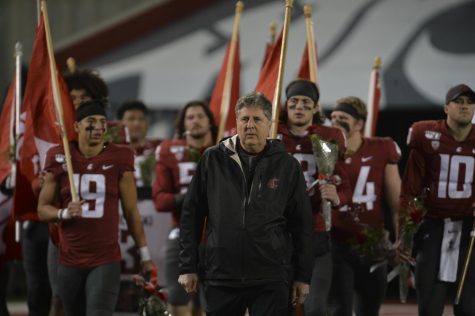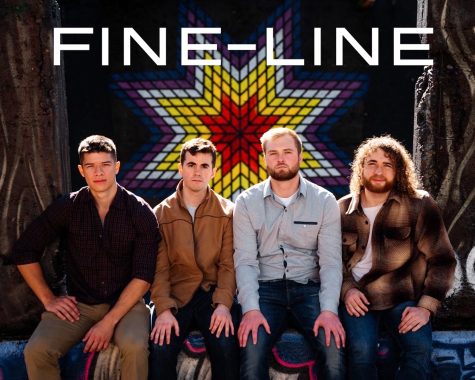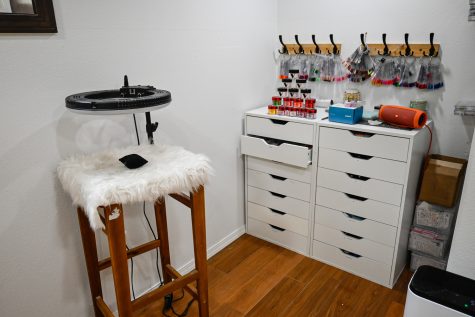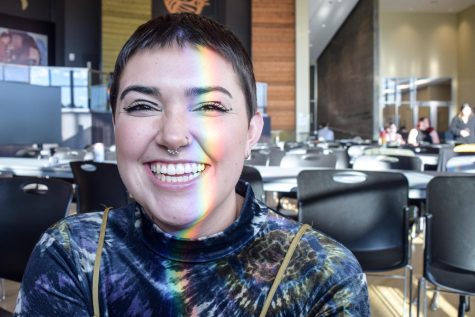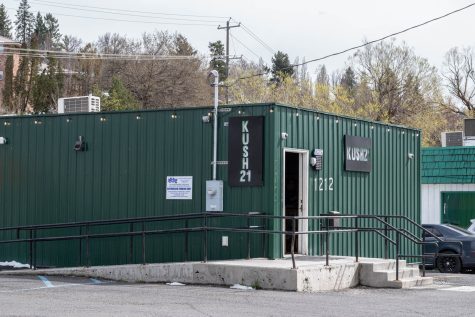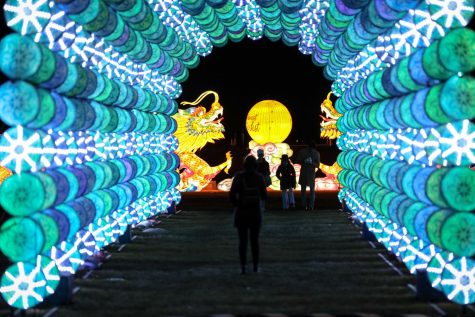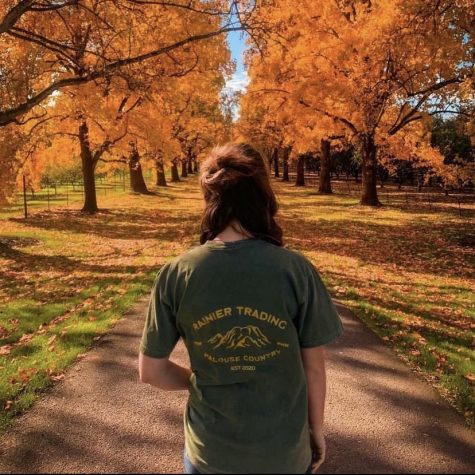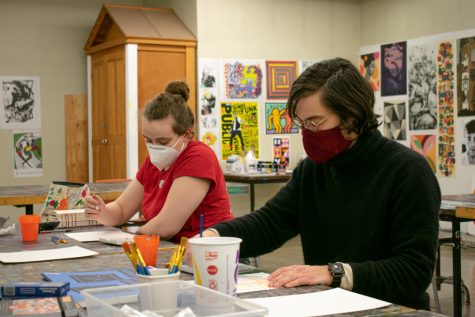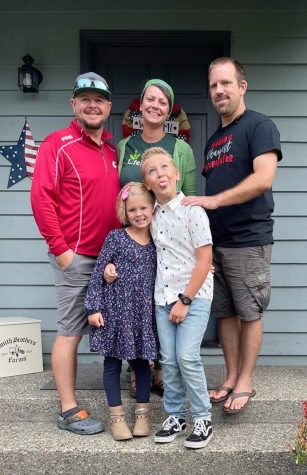An adventure following a blind man
February 15, 2017
{{tncms-asset app=”editorial” id=”95f8e88a-f340-11e6-98be-3713e28638da”}}
Imagine kayaking in whitewater rapids, feeling every swell of the current. Suddenly, the kayak tips, and chaos consumes the senses as roaring water swirls around. Now imagine all this happening while also being blind.
Erik Weihenmayer chronicles this experience and many more adventures in “No Barriers,” a book co-authored by Weihenmayer and Buddy Levy, a WSU creative writing professor.
“‘No Barriers’ was the result of a connection I had made with Erik Weihenmayer way back in 2003,” Levy said. “It was a relationship I had nurtured over fourteen years.”
Levy earned his degree in literature and creative writing from the University of Idaho. He has taught literature and creative, technical and professional writing at WSU for 27 years.
Levy met Weihenmayer while he was in Greenland to write about an expedition adventure race Weihenmayer competed in, the Arctic Team Challenge. Intrigued by the idea of a blind man competing in a multi-sport competition, Weihenmayer’s team invited Levy to join them on a weeklong trek through Greenland’s mountains and fjords.
“Sometimes I was trekking along next to him for hours and hours during the day and I got to see how his friend Jeff guided him using trekking poles that had bells on them,” Levy said.
After going completely blind at 14, Weihenmayer joined wrestling and went from a 0-15 record to making it to the national championships, Levy said. The benefit of wrestling was that it was a tactile experience; Weihenmayer did not need to see his opponent, just feel him.
Weihenmayer then learned how to rock climb. He could feel the rock face and mentally map out the holes and pivots. The experience may not be visual, but it is highly sensory, Levy said.
“Any blind person who is going to embark on something as challenging as rock climbing, or mountaineering or kayaking often needs systems and a good team to really succeed,” Levy said.
In May of 2001, Weihenmayer became the first and only blind person to reach the summit of Mt. Everest. Levy said that when Weihenmayer got back down, his expedition leader slapped him on the back and told him not to make Everest the greatest thing he did.
That moment was Weihenmayer’s call to action, kick starting over a decade’s worth of adventures honoring the challenge. “No Barriers” is a compilation of these adventures.
Levy again joined Weihenmayer when he and his team took on a kayaking escapade in the Grand Canyon in 2014, a trip titled “Kayaking Blind.”
“I spent about six hours in a kayak alongside Erik and the team of paddlers,” Levy said. “It was one of the most intense and fun days of my life.”
After six years of trial-and-error, learning to roll and developing a system with guides, Weihenmayer could take on the rapids in the canyon. Even with instruction from guides on a radio headset, there were moments when Weihenmayer thought he would die, Levy said.
Despite his experience sea kayaking, Levy said the role of a paddler needs to be perfected for bigger rapids. The volume, power and occasional whirlpool can flip a kayaker backwards or upside-down even when they see it coming. There is a certain level of commitment one needs to have to do something like whitewater rapids.
“If you’re hiking up a mountain, you can stop and catch your breath,” Levy said, “But once you begin down a giant, whitewater rapid, there’s no reverse. You’re going down that river.”
Levy managed to get through every rapid except the last one, which flipped him over. He said some of the team had to fish him out after he was able to get out of the kayak itself.
The entire experience was very emotional for Levy, who said he enjoyed the people he met during the process of writing “No Barriers.” Weihenmayer’s work included bringing in people who had amputated limbs or paralyzed bodies, helping them to do things their apparent disabilities would normally prevent them from doing.
The inspiration for the book’s title comes from the idea of having a “no barriers mindset and no barriers life,” Levy said. Everyone faces different challenges in their lives. Losing his sight forced Weihenmayer to figure out how to live a meaningful life.
“He went completely blind when he was 14 years old and realized he was sitting in a lunchroom surrounded by kids that were playing and having food fights,” Lev said, “but he was in a corner in this dark place.”
Levy and Weihenmayer’s book not only chronicles the latter’s adventures, but also shows how someone can get out of that corner of darkness. The people featured in the book all found ways to respond to challenges and learned not to be buried under life’s barriers, Levy said.
Levy will make an appearance at BookPeople of Moscow at 7 p.m. on Thursday to show videos, do a short reading and host a Q&A session for attendants.
“In a lot of ways,” Levy said, “the book is essentially a roadmap or a way to navigate through the turbulence and chaos that life throws at us and come out the other end maybe bruised up a bit but maybe transformed in ways too, sometimes for the better.”







